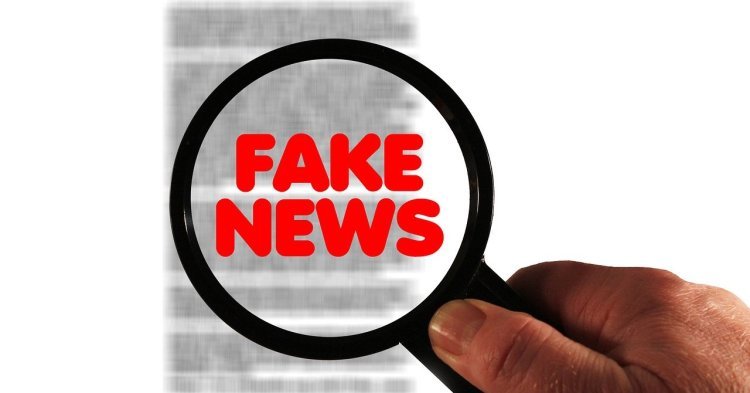Democracy built on sand pillars
Let us agree on one important principle: democracy builds on public debate. Therefore, diversity and plurality are intrinsically important. However, while opinions can (and should) divert, basic facts should not be distorted. And there lies the real danger of disinformation.
By spreading misleading information, one creates the impression that “traditional” media present news in a very one-sided way, slowly eroding trust in these. Disinformation attempts to polarize societies, impairing a peaceful democratic debate: on the one hand, it becomes increasingly difficult to find common ground and, on the other hand, it is more and more difficult for the citizen to make well-informed decisions.
While governments like to blame external actors for using disinformation as part of hybrid campaigns, for disinformation to be successful, it needs a fertile breeding ground. Although it has been established that a few states are familiar with organising such campaigns (i.e. Russia, China, Iran, among others), some conspiracy theories are created by domestic organisations. Conspiracy theories, a particular form of disinformation, build upon four feelings. First, there is a feeling of powerlessness in the face of global challenges like global warming or globalised politics. Second, conspiracy theories tend to explain unlikely events, removing any feeling of uncertainty. Third, they help to cope with real or imagined threats by providing some feeling of preparedness. Finally, conspiracy theories disrupt mainstream politics which allow believers to present themselves as minorities (preferably oppressed ones, of course).
The US and Europe have recently seen the constitution of groups supporting conspiracy theories such as “QAnon”. QAnon is a conspiracy theory claiming that a group of elites (also called the ‘deep state’), which happen to be child-trafficking paedophiles, is ruling the world, and that a group of ‘resistants’ is fighting against them. One of QAnon’s specificities is that it is conceived as a global and online community sharing mistrust toward official knowledge and fostering cooperation among local groups. Initially present in the US, where believers argue that Donald J. Trump is one of the abovementioned resistants, the group has steadily increased its presence in Europe. Engagement in conspiracy groups on Facebook has increased with the successive lockdowns across Europe, building on increased time spent online and amount of information. In Germany, QAnon built an audience on Youtube, Facebook and the messaging app Telegram. Adopted by far-right movements, the Q theories provided a way to reframe their nationalistic-racist discourse into a fight against global elites, against the deep state.
“Q” is such a flexible conspiracy theory that it was adopted by some Yellow Jackets protesters in France, some anti-vaccine groups in Italy and by Brexit supporters in the United Kingdom. On November 9, Estonian Interior Minister Mart Helme had to resign after accusing Joe Biden to have been elected by the deep state. A well-known Q theory accused Bill Gates of having created the coronavirus pandemic for his own gain and of planning on injecting microchips into people’s bodies through vaccines to control them afterwards.
“Good morning, Commission speaking”
The European Commission didn’t wait until 2020 to take action to counter disinformation. Following the 2014 annexation of Crimea, in 2015, the Commission set up the European External Action Service (EEAS) East StratCom Task Force that aims to counter Russian disinformation. Since disinformation was perceived as a warfare component, in 2016, Brussels adopted the Joint Framework on Countering Hybrid threats.
The EU adopted a new package of measures in 2018, with the objective of safeguarding the integrity of the 2019 European elections. In April 2018, the Commission published its communication “Tackling online disinformation: a European approach”. Following up on that communication, the EU provided a framework for the private sector to commit in the fight against disinformation with the adoption of the “Code of Practice on disinformation”. Facebook, Twitter, Mozilla and Google were the first participants. Microsoft joined in 2019 and in June 2020, TikTok signed the Code. These companies committed to preventing certain accounts spreading disinformation of generating revenues through advertisement, making political advertising more transparent, addressing the issue of fake accounts and online bots, empowering consumers to report disinformation and have an easier access to authoritative content, and finally empowering the research community to monitor online disinformation. Following the measures taken by these platforms, some of the groups moved from social media to messaging apps like WhatsApp and Telegram, which are using encrypted communication to safeguard the privacy of its users.
It was only in December 2018 that the Commission adopted a broader “Action Plan against Disinformation”. With the need to strike a balance between content regulation and freedom of speech, the Commission started to include civilian elements in a security-based mindset. The Action Plan is built around four pillars: 1) improving EU’s capabilities to detect, analyse and expose disinformation, 2) strengthening coordinated and joint responses to disinformation, 3) mobilising private sector to tackle disinformation, 4) raising awareness and improving societal resilience, acknowledging that “the impact of disinformation differs from one society to another, depending on education levels, democratic culture, trust in institutions, the inclusiveness of electoral systems, the role of money in political processes, and social and economic inequalities”. The Action Plan also underlined the need to support quality journalism.
Needless to say, as with all policies, there will be a before- and after-2020. Facing a dramatic increase in information available, the multiplication of hoaxes, hate speech, consumer fraud and misleading content and growing uncertainty deriving from a virus no-one knew nothing about, the Commission had no choice but to reinforce all instruments available: it increased international cooperation (notably through the Rapid Alert System established in March 2019), relied on online platforms and empowered fact-checkers.
Disinformation: Only a symptom?
So far, the Commission has adopted a mainly repressive attitude, aiming at reducing misleading content online, but how far can it go while protecting freedom of speech, a European core value? What if this approach is only curing the symptoms but not the illness? What if the success of conspiracy theories was only a symptom of a more serious disease? As rightly pointed out in the Action Plan against Disinformation, disinformation is only as efficient as the feeling of uneasiness of one society is strong.
So far, the Commission has adopted a mainly repressive attitude, aiming at reducing misleading content online, but how far can it go while protecting freedom of speech, a European core value? What if this approach is only curing the symptoms but not the illness? What if the success of conspiracy theories was only a symptom of a more serious disease? As rightly pointed out in the Action Plan against Disinformation, disinformation is only as efficient as the feeling of uneasiness of one society is strong.
In September 2020, the Commission completed a public consultation which should inspire the legislator in drafting a Democracy Action Plan. According to the Commission, this plan would aim at 1) ensuring election integrity, free and fair electoral systems, 2) strengthening media freedom and media pluralism, notably by protecting journalists, their rights and working conditions, 3) tackling disinformation in a coherent manner, and 4) supporting civil society in increasing fact-checking actions and media literacy.
What if the key to reducing the impact of disinformation was completely unrelated to disinformation itself? What if the only way to fight back was to recreate social cohesion and public and open debate, reduce inequalities around the globe and work to provide individuals with opportunities to pursue their dreams and fulfil their potential?


Follow the comments: |
|
